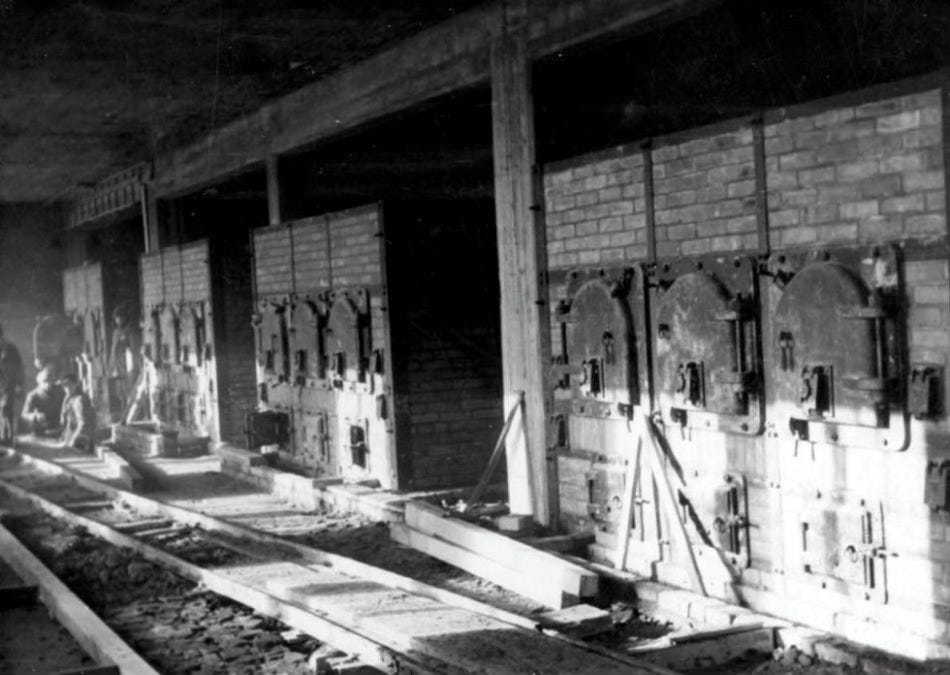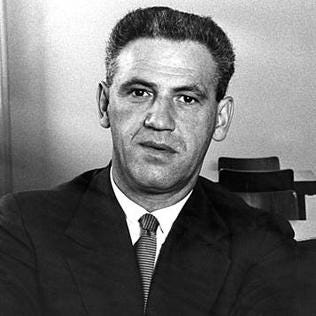The end of the Sonderkommando
5th December 1944: With the beginning of the end of Auschwitz, the men forced to work in the Gas Chambers must face their own end

As the Russians continued their advance in the east, the Nazis were finally compelled to consider the future of Auschwitz. The mass murder by gassing of trainloads of men, women and children had continued through to November. Now the Nazis began the process of demolishing some of the killing facilities.
As well as demolishing the crematoria, the Nazis had decided to kill off the men who worked in them, men employed in the Sonderkommando. These were the men with the grisly job of removing bodies from the Gas chambers and sorting out the personal effects. Records show that a demolition team was chosen from among these existing prisoners on 5th December.
We must submit to the inevitable with Jewish resignation. It will be the last trial sent to us by heaven.
A previous attempt to 'select' some of the Sonderkommando in October had resulted in a revolt, when the prisoners had attacked the SS with stones, only to be cut down by machine guns. Unlike new arrivals at Auschwitz these men were fully aware of their intended fate and knew thy had nothing to lose. Now as the SS began one of their final selections, they were taking no chances and those awaiting their fate were surrounded by heavily armed SS guards.

Filip Muller1 was one of those who narrowly escaped one more time. He was selected to live a little longer to keep just one of the crematoria in operation:
For a start, the three pathologists and their assistants were sent to one side and after them the thirty prisoners, including myself, billeted in crematorium 5. Finally the SS chose a third group of some seventy prisoners who were to form the demolition team.
The rest were told they would be transferred to camp Grossrosen. What happened to them we never learned, but we all realized that their time had come.
Suddenly from out of the ranks of doomed prisoners stepped the young Rabbinical student who had worked in the hair-drying team. He turned to Oberscharfuhrer Muhsfeld and with sublime courage told him to be quiet.
Then he began to speak to the crowd:
‘Brothers!’ he cried, ‘it is God’s unfathomable will that we are to lay down our lives. A cruel and accursed fate has compelled us to take part in the extermination of our people, and now we are ourselves to become dust and ashes. No miracle has happened.
Heaven has sent no avenging bolts of lightning. No rain has fallen strong enough to extinguish the funeral pyres built by the hand of man. We must submit to the inevitable with jewish resignation. It will be the last trial sent to us by heaven. It is not for us to question the reasons, for we are as nothing before Almighty God. Be not afraid of death!
Even if we could, by some chance, save our lives, what use would that be to us now? In vain we would search for our murdered relatives. We should be alone, without a family, without relatives, without friends, without a place we might call our own, condemned to roam the world aimlessly.
For us there would be neither rest nor peace of mind until one day we would die in some corner, lonely and forsaken. Therefore, brothers, let us now go to meet death bravely and with dignity!’
The SS did not interrupt him while he spoke. When he had finished there was complete silence among the selected men. The sight of muzzles aimed at them from all sides had convinced them very forcibly of the futility of any resistance and the words they had just heard only underlined the hopelessness of their situation.
Among this desperate crowd of men I recognized Dr Pach, most selfless and devoted of doctors, as well as the two dental mechanics whose job had been to melt down the gold taken from the mouths of the dead. As long as they were in the Sonderkommando they had consciously existed like corpses waiting their turn. And now the time they had dreaded, the hour they had hoped and prayed would pass them by, had come at last.
I, too, felt wretched and depressed for, though so far I had managed to slip through the selection net, I knew it could not be long before my turn would come.
Once the gassings had finally ceased, only one crematorium was kept working, burning the corpses of prisoners who had died in the main and auxiliary camps. In the same building behind a wooden partition was the dissecting room where Dr Mengele and his assistants continued with their pseudo-medical experiments.

Filip Muller: Eyewitness Auschwitz: Three Years in the Gas Chambers

